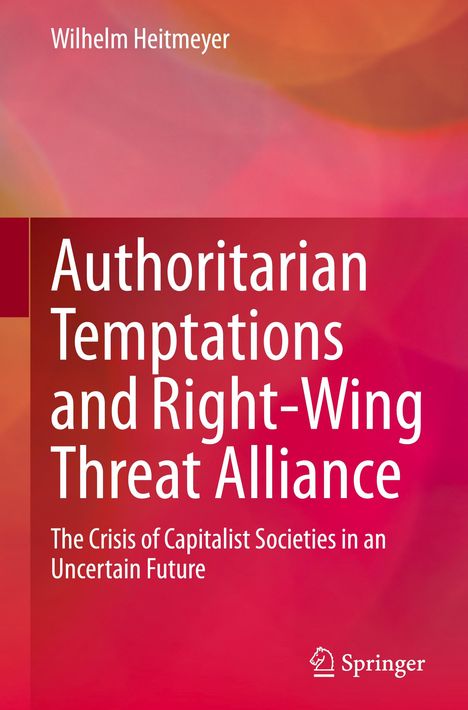Wilhelm Heitmeyer: Authoritarian Temptations and Right-Wing Threat Alliance, Gebunden
Authoritarian Temptations and Right-Wing Threat Alliance
- The Crisis of Capitalistic Societies in an Uncertain Future
(soweit verfügbar beim Lieferanten)
- Verlag:
- Springer Nature Switzerland, 06/2024
- Einband:
- Gebunden, HC runder Rücken kaschiert
- Sprache:
- Englisch
- ISBN-13:
- 9783031529122
- Artikelnummer:
- 11904680
- Umfang:
- 304 Seiten
- Nummer der Auflage:
- 2024
- Ausgabe:
- 2024
- Gewicht:
- 678 g
- Maße:
- 241 x 160 mm
- Stärke:
- 21 mm
- Erscheinungstermin:
- 26.6.2024
- Hinweis
-
Achtung: Artikel ist nicht in deutscher Sprache!
Klappentext
This book, by noted German sociologist Wilhelm Heitmeyer, analyses capitalist development in Western Europe, with a focus on Germany, since the 1990s and its consequences for open society and liberal democracy. Following Heitmeyer¿s long-term interest in extremism, this book highlights two main threads of discussion: the causes and distribution of authoritarian tendencies, and the processes and steps of escalation of these tendencies through right-wing alliances. It critically views capitalism and capitalist governance in times of crises against problems of political representation and the devaluation of certain groups. It looks at a broad spectrum of attitudes in the population on the bases of a representative longitudinal study called ¿group-focused enmity¿. Using the model of a ¿concentric escalation continuum¿, this book also analyses the steps of differentiation and dynamization of the right-wing spectrum in the process of development of successful right-wing alliances. Heitmeyer meticulously studies how violent processes escalate and increases as a danger for the open society and liberal democracy, especially in times of crisis and unsecured future. The book has important gleanings for anyone seeking to understand and address extremism and political alienation in societies today.
Biografie
Dr. Wilhelm Heitmeyer ist Professor an der Universität Bielefeld und Leiter des Instituts für interdisziplinäre Konflikt- und Gewaltforschung.

